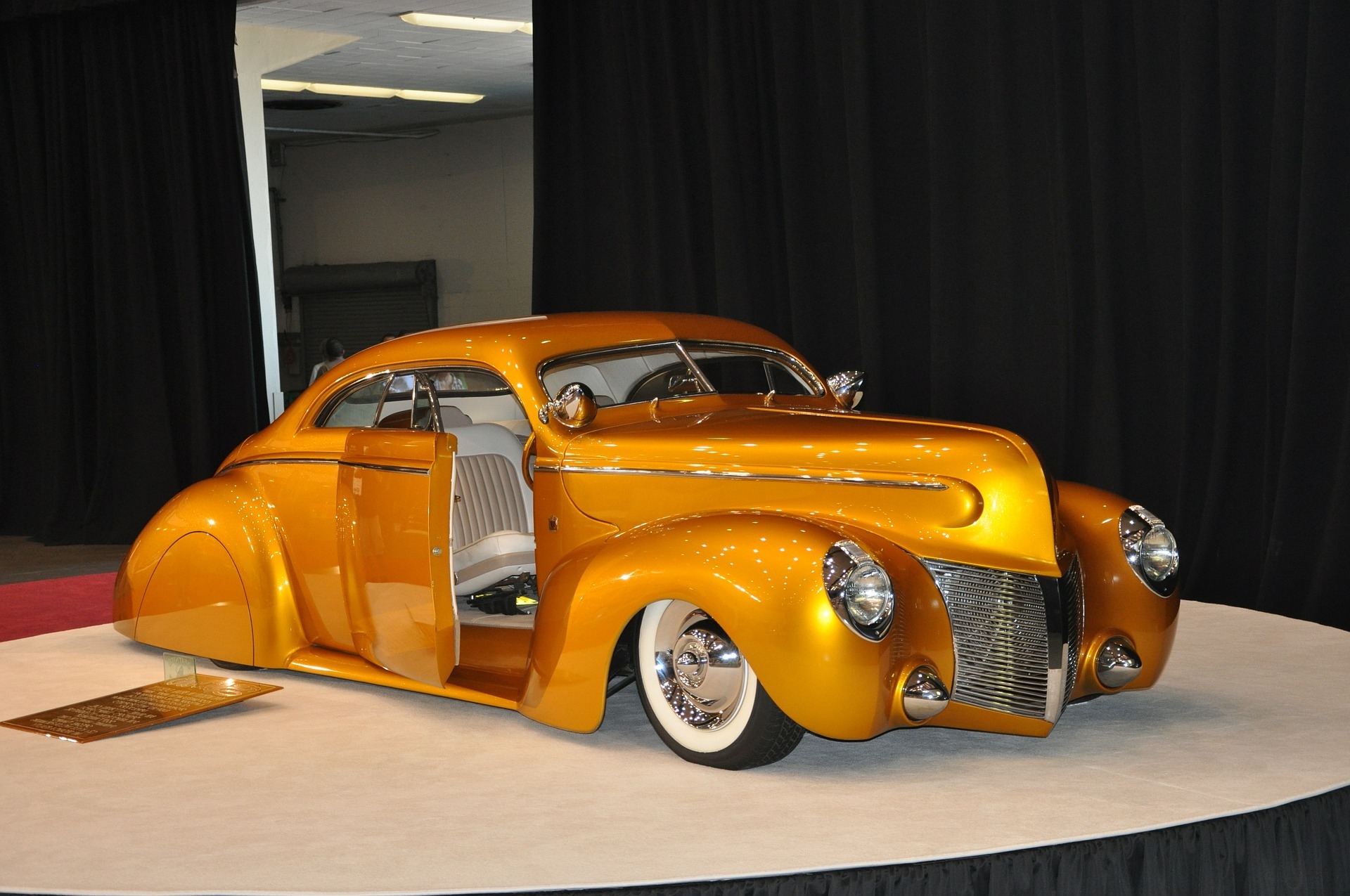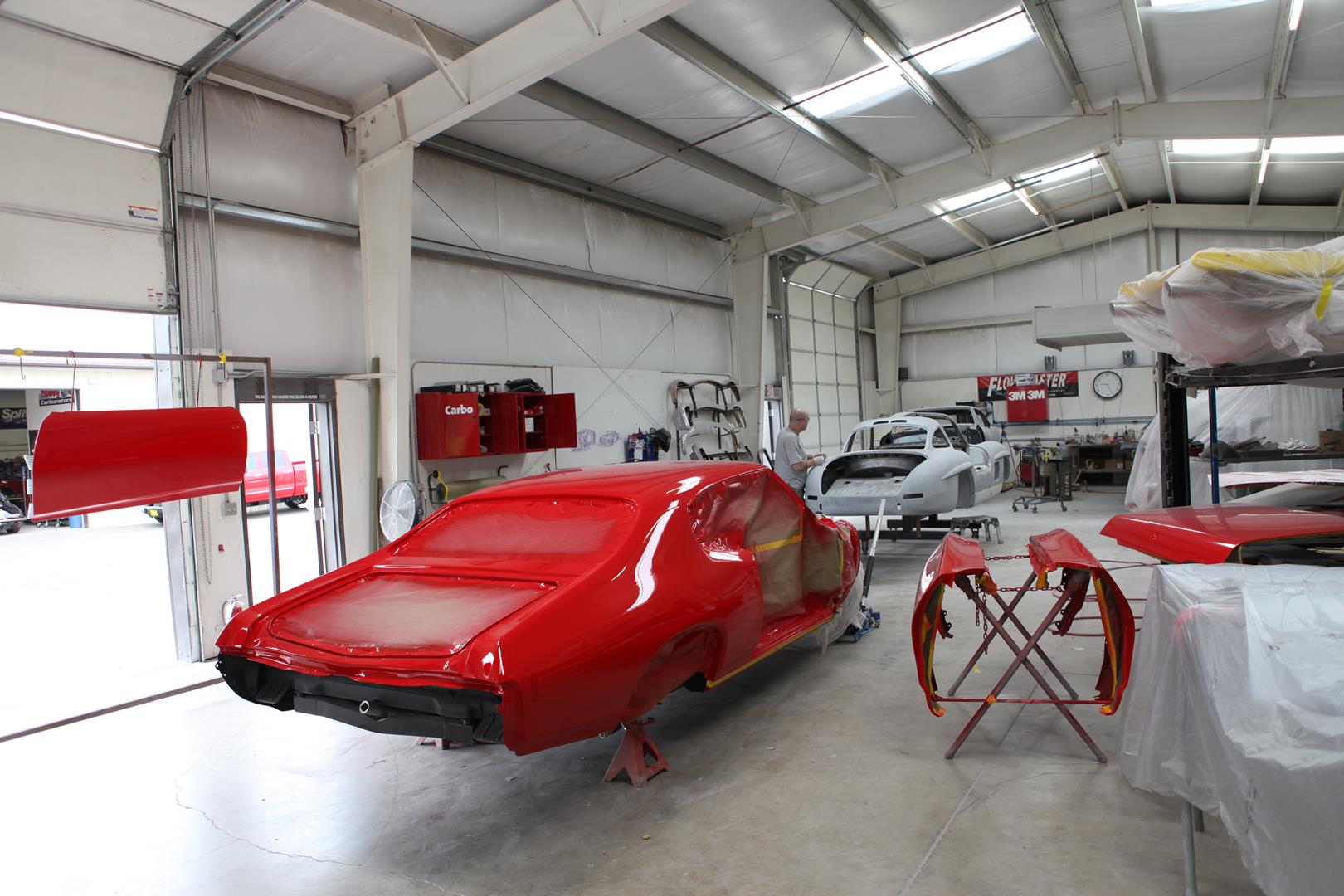Denver Classic Car Restoration: A Guide to Preserving Automotive History
Embark on a captivating journey into the world of Denver classic car restoration, where skilled artisans breathe new life into automotive icons. From vintage roadsters to muscle cars, Denver’s restoration scene is a testament to the enduring passion for preserving automotive history.
Explore the intricacies of engine rebuilding, bodywork, paint restoration, and interior rejuvenation. Discover the factors to consider when selecting a restoration shop and delve into case studies of notable Denver restorations. Uncover the best practices for preserving originality, maintaining authenticity, and ensuring quality workmanship.
Immerse yourself in the vibrant Denver classic car community, where enthusiasts gather to share their passion and celebrate automotive heritage.
Overview of Denver Classic Car Restoration Industry

Denver’s classic car restoration industry has a rich history and continues to thrive, with a strong community of skilled professionals and a growing demand for classic car restoration services.
The industry has seen significant growth in recent years, driven by the increasing popularity of classic cars as investment opportunities and collector’s items.
Key Players
Several key players have contributed to the growth of Denver’s classic car restoration industry, including:
- Mile High Classics: A leading restoration shop known for its expertise in high-end classic car restoration.
- Rocky Mountain Restorations: A full-service restoration shop that specializes in muscle cars and vintage European vehicles.
- Classic Car Studio: A boutique restoration shop that focuses on British and Italian sports cars.
Services Offered by Denver Classic Car Restoration Shops
Denver classic car restoration shops offer a wide range of services to cater to the needs of classic car owners. These services include engine rebuilding, bodywork, paint restoration, and interior restoration.Engine rebuilding involves disassembling the engine, inspecting the components, and replacing or repairing any worn or damaged parts.
This process requires a high level of expertise and specialized tools to ensure that the engine is rebuilt to its original specifications.Bodywork involves repairing or replacing any damaged or rusted body panels. This process can be complex and time-consuming, as it requires skilled craftsmen to shape and weld the metal to match the original contours of the car.Paint restoration involves removing the old paint, repairing any imperfections in the bodywork, and applying a new coat of paint.
This process requires a keen eye for detail and a deep understanding of paint chemistry to achieve a flawless finish.Interior restoration involves replacing or repairing any worn or damaged interior components, such as seats, carpets, and headliners. This process requires attention to detail and a deep understanding of the materials and techniques used in the original interior design.
Case Studies of Notable Denver Classic Car Restorations
Denver’s classic car restoration scene boasts a rich history and a remarkable track record of successful restorations. From vintage roadsters to muscle cars, Denver’s skilled craftsmen have brought countless automotive treasures back to their former glory.
Here are a few notable case studies that showcase the exceptional work being done in Denver’s classic car restoration industry:
1957 Chevrolet Bel Air, Denver classic car restoration
A 1957 Chevrolet Bel Air, lovingly dubbed “Blue Moon,” was brought to a Denver restoration shop in a dilapidated state. The car’s exterior was rusted and faded, and its interior was in shambles. The restoration team embarked on a meticulous process that involved replacing the entire body, rebuilding the engine, and reupholstering the interior.
The finished product was a stunning tribute to the iconic American classic, showcasing the transformative power of expert restoration.
1965 Ford Mustang
A 1965 Ford Mustang, a symbol of American muscle, was brought to a Denver shop in need of a complete overhaul. The car’s exterior had been damaged in an accident, and its interior was worn and outdated. The restoration team meticulously repaired the bodywork, repainted the car in its original shade of Wimbledon White, and installed a new interior.
The result was a breathtaking restoration that captured the essence of the legendary pony car.
1970 Plymouth Barracuda
A 1970 Plymouth Barracuda, a rare and sought-after muscle car, was brought to a Denver restoration shop in need of extensive repairs. The car’s body was severely rusted, and its engine was inoperable. The restoration team painstakingly replaced the rusted panels, rebuilt the engine, and restored the car’s iconic Plum Crazy paint.
The finished product was a testament to the skill and dedication of Denver’s classic car restorers.
Emerging Trends in Denver Classic Car Restoration

The Denver classic car restoration industry is constantly evolving, with new trends emerging all the time. These trends are being driven by a number of factors, including advances in technology, the growing popularity of sustainable practices, and the increasing demand for electric vehicles.One of the most significant trends in the Denver classic car restoration industry is the use of advanced technologies.
These technologies are being used to improve the accuracy and efficiency of the restoration process. For example, 3D scanning is being used to create precise replicas of original parts, and computer-aided design (CAD) is being used to design and engineer new components.Another trend in the Denver classic car restoration industry is the growing popularity of sustainable practices.
This is being driven by a number of factors, including the increasing awareness of the environmental impact of classic cars and the rising cost of fuel. As a result, many classic car restorers are now using sustainable materials and practices in their work.Finally, the growing popularity of electric vehicles is also having an impact on the Denver classic car restoration industry.
A number of classic car restorers are now offering electric vehicle conversions. This is a great way to reduce the environmental impact of classic cars and to make them more affordable to operate.
Use of Advanced Technologies
The use of advanced technologies is one of the most significant trends in the Denver classic car restoration industry. These technologies are being used to improve the accuracy and efficiency of the restoration process. For example, 3D scanning is being used to create precise replicas of original parts, and computer-aided design (CAD) is being used to design and engineer new components.One of the most important benefits of using advanced technologies in classic car restoration is that it allows restorers to achieve a higher level of accuracy.
3D scanning, for example, can be used to create a digital model of an original part, which can then be used to create a precise replica. This is especially important for parts that are difficult or impossible to find.CAD is another valuable tool for classic car restorers.
CAD can be used to design and engineer new components, such as custom body panels or engine parts. This allows restorers to create unique and personalized vehicles.
Sustainable Practices
The growing popularity of sustainable practices is another trend in the Denver classic car restoration industry. This is being driven by a number of factors, including the increasing awareness of the environmental impact of classic cars and the rising cost of fuel.
As a result, many classic car restorers are now using sustainable materials and practices in their work.One of the most important ways that classic car restorers are reducing their environmental impact is by using sustainable materials. These materials include recycled metals, plastics, and wood.
Recycled metals are used to create new body panels and other components, while recycled plastics are used to create interior parts and trim. Recycled wood is used to create new dashboards and other interior components.Classic car restorers are also using sustainable practices to reduce their energy consumption.
This includes using energy-efficient lighting and appliances, and installing solar panels. Solar panels can be used to generate electricity to power the workshop, and they can also be used to charge electric vehicles.
Electric Vehicle Conversions
The growing popularity of electric vehicles is also having an impact on the Denver classic car restoration industry. A number of classic car restorers are now offering electric vehicle conversions. This is a great way to reduce the environmental impact of classic cars and to make them more affordable to operate.There are a number of benefits to converting a classic car to electric.
First, electric vehicles produce zero emissions, which is better for the environment. Second, electric vehicles are more efficient than gasoline-powered vehicles, which means that they can travel further on a single charge. Third, electric vehicles are cheaper to operate than gasoline-powered vehicles, since electricity is cheaper than gasoline.If you are considering converting your classic car to electric, there are a few things you should keep in mind.
First, you will need to find a qualified classic car restorer who has experience with electric vehicle conversions. Second, you will need to purchase an electric motor and battery pack. Third, you will need to have the car’s electrical system modified to accommodate the electric motor and battery pack.
Denver Classic Car Restoration Community

The Denver classic car restoration community is a vibrant and passionate group of enthusiasts who share a love for preserving and restoring classic cars.
The community is supported by a number of clubs and organizations, including the Colorado Classic Car Club, the Rocky Mountain Region of the Antique Automobile Club of America, and the Denver chapter of the Classic Car Club of America.
Events, Clubs, and Organizations
- Colorado Classic Car Club: Founded in 1956, the Colorado Classic Car Club is one of the oldest and largest classic car clubs in the Denver area. The club hosts a variety of events throughout the year, including car shows, cruises, and rallies.
- Rocky Mountain Region of the Antique Automobile Club of America: The Rocky Mountain Region of the Antique Automobile Club of America (AACA) is a national organization dedicated to the preservation and enjoyment of antique and classic cars. The Rocky Mountain Region hosts a variety of events throughout the year, including car shows, tours, and educational programs.
- Denver Chapter of the Classic Car Club of America: The Denver Chapter of the Classic Car Club of America (CCCA) is a national organization dedicated to the preservation and enjoyment of classic cars. The Denver Chapter hosts a variety of events throughout the year, including car shows, tours, and educational programs.
These clubs and organizations provide a great way for classic car enthusiasts to connect with each other, share their knowledge and expertise, and participate in a variety of fun and educational activities.
Role of the Community
The Denver classic car restoration community plays an important role in promoting and preserving classic car culture.
- Preservation: The community’s efforts to restore and preserve classic cars help to ensure that these vehicles will be around for future generations to enjoy.
- Education: The community’s events and educational programs help to educate the public about the history and significance of classic cars.
- Advocacy: The community’s advocacy efforts help to protect the rights of classic car owners and enthusiasts.
The Denver classic car restoration community is a vibrant and passionate group of enthusiasts who are dedicated to preserving and promoting classic car culture.
Summary
Denver classic car restoration is more than just a craft; it’s a labor of love that transcends time. These dedicated artisans are the guardians of automotive history, ensuring that future generations can appreciate the beauty and significance of these iconic vehicles.
As the industry continues to evolve, Denver remains a beacon of excellence in classic car restoration, setting the standard for preserving automotive heritage.
FAQs
What are the key factors to consider when choosing a Denver classic car restoration shop?
Experience, reputation, certifications, customer testimonials, and alignment of the shop’s capabilities with your specific restoration needs are crucial factors to consider.
What are the emerging trends in Denver classic car restoration?
Advanced technologies, sustainable practices, and the growing popularity of electric vehicle conversions are shaping the future of classic car restoration in Denver.

